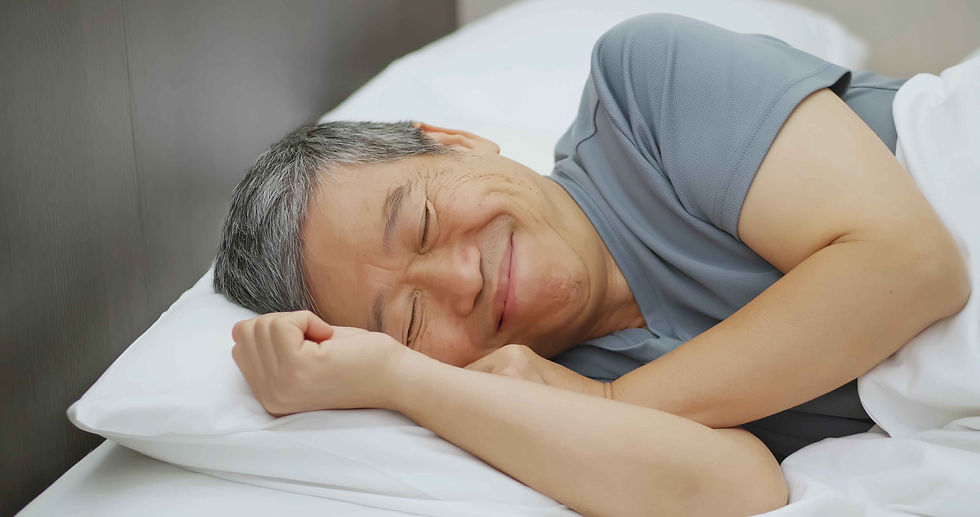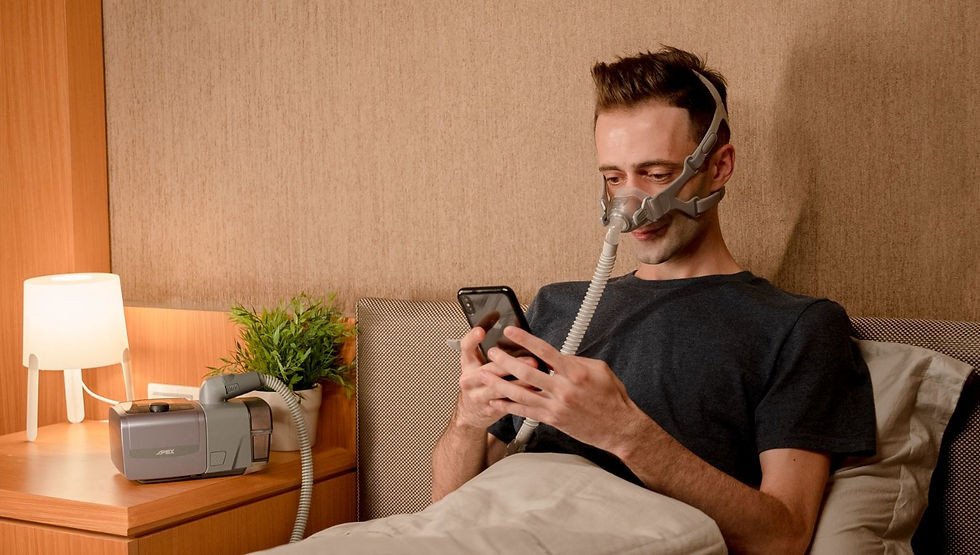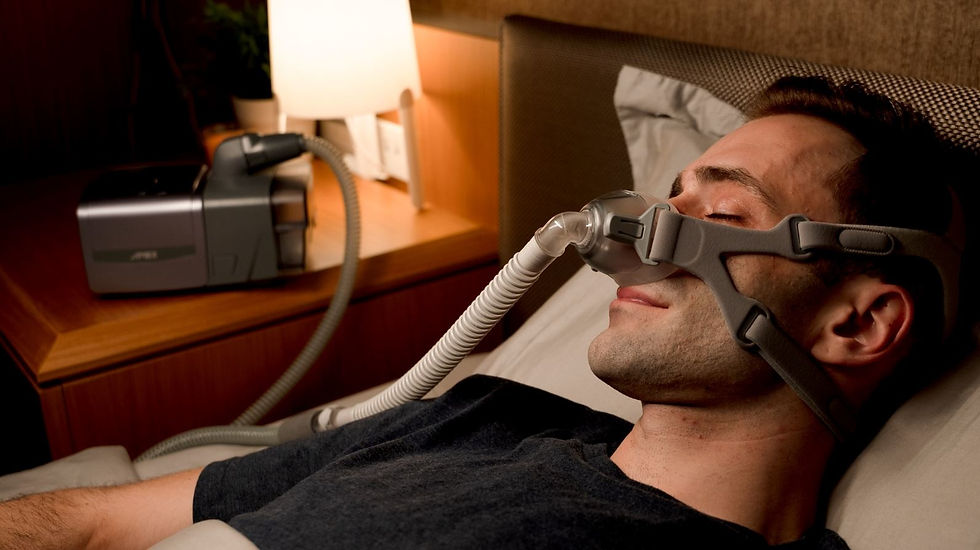Welcome back to Dr Euan's blog.
Today's blog post continues the last post on sleep and snoring written by Mr Eric Lim, Co-founder of ERIKG Pte Ltd and provides practical tips for a good night's sleep.

Image of a man having a good night's sleep
Getting a good night's sleep is essential for your overall health and well-being.
Here are some general tips for improving your sleep, as well as specific information on treating Obstructive Sleep Apnea (OSA) and how to pick a CPAP (Continuous Positive Airway Pressure) machine.
General Tips for Improving Sleep
How to Get a Good Night's Sleep
Maintain a Consistent Sleep Schedule: Try to go to bed and wake up at the same time every day, even on weekends. This helps regulate your body's internal clock.
Create a Comfortable Sleep Environment:
Ensure your bedroom is dark, quiet, and at a comfortable temperature. Do invest in a comfortable mattress and pillows. Remove electronic devices that emit blue light from your bedroom.
Limit Screen Time Before Bed:
The blue light from your phone/iPad/monitor screens can interfere with your body's production of melatonin, a hormone that regulates sleep. Avoid screen usage for at least an hour before bedtime.
Watch Your Diet:
Avoid large meals, caffeine, and alcohol close to bedtime. These activities tend to promote Gastro-Esophageal Reflux (GERD) which will aggravate your sleep issues. Instead, do consider a light, healthy snack if you are hungry before bed.
Exercise Regularly:
Regular physical activity and exercise can improve your sleep. Try to finish your workout at least 2 to 3 hours before bedtime.
Manage Stress:
Stress and anxiety can disrupt sleep. Practice relaxation techniques such as deep breathing, meditation, mindfulness or progressive muscle relaxation.
Limit Naps:
If you need to nap during the day, keep it short (20-30 minutes) and earlier in the day to avoid interfering with night-time sleep patterns.
Consult a Healthcare Professional:
If you continue to have trouble sleeping, it is a good idea to consult a healthcare professional to rule out underlying medical conditions or sleep disorders.
How to Treat OSA (Obstructive Sleep Apnea) and Pick a CPAP Machine
Obstructive sleep apnoea is a serious medical condition where your airway is partially or completely blocked during sleep, leading to interruptions in breathing. This leads to a drop in your oxygen saturation levels and can adversely affect vital organs eg your heart and brain.
That is why patients with UN-treated OSA suffer more frequently from Hypertension (High Blood Pressure), Heart Disease and even strokes. These adverse outcomes for UN-treated OSA are now well-researched and documented in many studies.
The most common NON-invasive treatment for OSA is Continuous Positive Airway Pressure (CPAP) therapy.

Image of a man using a CPAP Machine
Get a Diagnosis:
Before selecting a CPAP machine, it is essential to get a proper diagnosis from a sleep specialist or a pulmonologist who may recommend a sleep study or PSG. Nowadays (post-COVID), most sleep studies are done in the comfort of your own home, in your bed. Sometimes, your Specialist may recommend the sleep study to be done in a hospital (Sleep Lab) setting where a Technician will supervise and even record your sleep patterns /leg movements or other sleep-related disorders.
Consult a Healthcare Professional:
Work closely with a healthcare provider, such as a respiratory therapist or sleep specialist, to determine the right CPAP machine and CPAP settings for your specific needs. These can be adjusted from time to time to ensure comfort and compliance.
CPAP (Continuous Positive Airway Pressure):
CPAP provides a continuous flow of air to keep your airway open during sleep. Some CPAP machines have additional features such as heated humidifiers, ramp-up settings, and data tracking. Discuss your specific needs and preferences with your healthcare provider.
Mask Selection:
The mask fit is crucial for the success of any CPAP therapy. There are different types of masks available, including full-face, nasal, and nasal pillow masks. The right mask for you depends on your comfort and how you breathe during sleep. Many CPAP trials fail because of this simple but crucial mask fitting. So take your time and choose the best mask to fit your nose/mouth / face, for optimal results.
Insurance and Cost:
Do check with your insurance provider to understand if they provide you with coverage for CPAP therapy. You may need a prescription to purchase a CPAP machine through insurance. This can be done by your ENT / Sleep Physician.
Maintenance and Follow-Up:
Remember to regularly clean and maintain your CPAP equipment, change the filters and schedule follow-up appointments with your healthcare provider to adjust the CPAP settings as & when needed.

Image of a man sleeping with CPAP machine
Choosing the right CPAP machine and mask is essential for effective OSA treatment. It's crucial to consult with a healthcare professional who can provide professional personalized guidance based on your specific needs and preferences. For more information on CPAP machines and masks, please contact ERIKG Pte Ltd.
If you find yourself struggling with sleep issues, whether it be persistent snoring, daytime fatigue, or suspected sleep apnoea, don't hesitate to reach out to us at Euan's ENT Surgery & Clinic or call 66944282 to take the first step towards a better night's sleep and improved well-being by scheduling a consultation with us today.


Comments